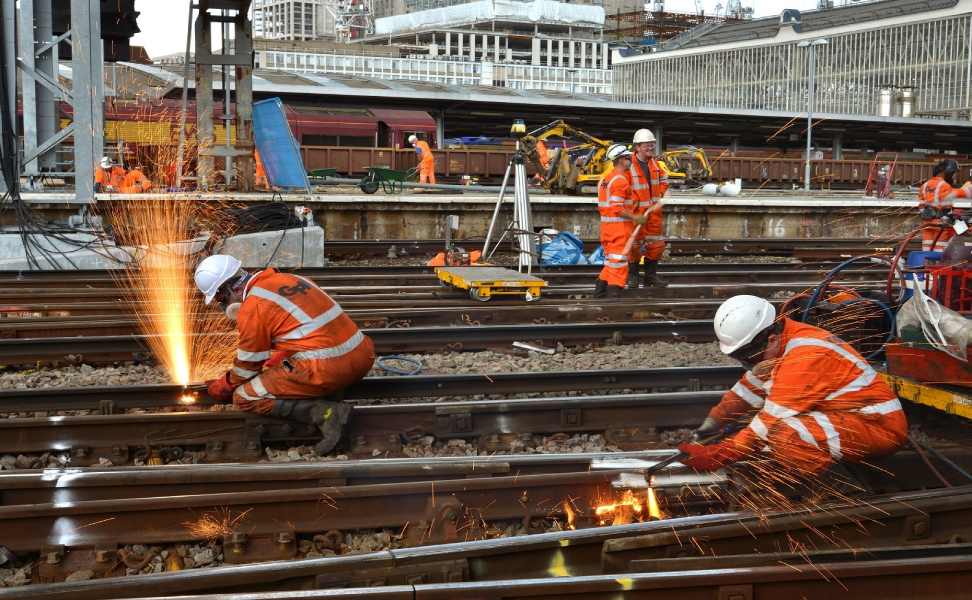The rhythmic rumble of a train passing by, the vast network of tracks snaking across the country – the railroad industry holds a certain romantic image. But beyond the nostalgia, is a career in railroads a viable and attractive option in today’s job market? The answer, like any career path, has its complexities. Let’s delve into the factors that make railroads a potentially rewarding career choice, while acknowledging the challenges to consider.
Strong Points of a Railroad Career
- Stability and Growth: The railroad industry is an essential part of the global economy, responsible for transporting vast quantities of freight across vast distances. This ensures consistent demand for skilled professionals, offering a high degree of job security.
- Diverse Career Options: The industry extends far beyond train operators. Opportunities exist in various sectors:
- Operations: Conductors oversee train movements, ensuring safety and adherence to regulations.
- Maintenance: Skilled technicians keep locomotives and tracks in top condition, requiring expertise in mechanics, welding, and electrical systems.
- Signaling: Signal maintainers ensure the intricate network of signals functions flawlessly, guaranteeing safe train movement.
- Management and Administration: The industry thrives on effective leadership, logistics planning, and data analysis, opening doors for careers in these fields.
- Competitive Salaries and Benefits: Railroad jobs often come with attractive compensation packages. Locomotive engineers, for instance, earn a median salary exceeding $65,000 annually in the US [Source: Bureau of Labor Statistics]. Additionally, benefits packages typically include health insurance, retirement plans, and paid time off.
- Training and Advancement: Many railroad companies invest heavily in training their workforce. Paid apprenticeship programs equip individuals with the necessary skills and certifications to excel in their chosen fields. This, coupled with the industry’s structured hierarchy, creates clear paths for career advancement.
Challenges to Consider
- Work Schedule: The railroad industry operates 24/7, demanding shift work and long hours. Train operators, for example, might work irregular schedules, including nights, weekends, and holidays. This can be a significant factor for individuals seeking a traditional work-life balance.
- Physical Demands: Several railroad professions require manual labor and the ability to work outdoors in varying weather conditions. Lifting heavy equipment, enduring extreme temperatures, and working long stretches with minimal breaks are aspects to consider for those seeking less physically demanding careers.
- Technological Advancements: Automation is gradually impacting the railroad industry. While it eliminates some manual tasks, it could potentially affect future job growth in certain operational roles.
Exploring Your Fit
- Interests and Skills: If you find the technical aspects of mechanics, the thrill of operating heavy machinery, or the challenge of logistical planning appealing, the railroad industry offers avenues to utilize these interests.
- Lifestyle Considerations: Are you comfortable with shift work and the potential for long hours away from home? Evaluating your lifestyle preferences is crucial before pursuing a career in railroads.
- Research and Networking: Reach out to railroad companies or industry associations to learn more about available positions, training requirements, and career progression opportunities. Attending industry events or connecting with professionals on platforms like LinkedIn can provide valuable insights.
Beyond the Train Tracks
The railroad industry’s reach extends beyond traditional roles. With increasing focus on sustainability and efficiency, the sector is embracing technological advancements. This opens doors for specialists in data analysis, cybersecurity, and engineering fields to contribute to the modernization of railroad operations.
In Conclusion
A career in railroads can be a fulfilling and secure path for those who find the industry’s unique aspects appealing. Competitive salaries, diverse opportunities, and clear progression paths are strong incentives. However, the demanding work schedule, physical requirements, and potential impact of automation require careful consideration.
Ultimately, deciding if a railroad career is the right fit hinges on individual interests, skills, and an honest assessment of the lifestyle demands. Thorough research, exploring various roles within the industry, and understanding the evolving landscape are crucial steps before embarking on this rewarding career journey.
Feature image source:- https://tinyurl.com/4stzxtr8

